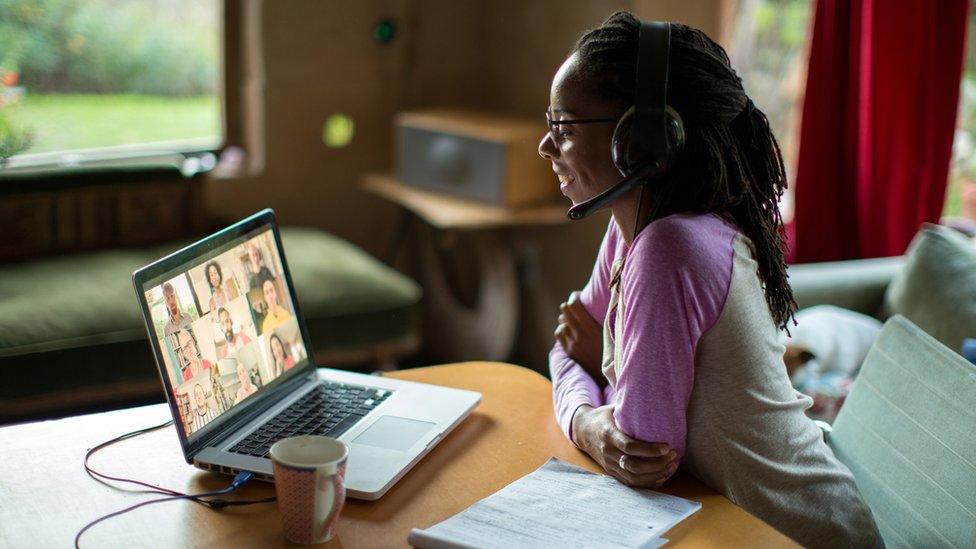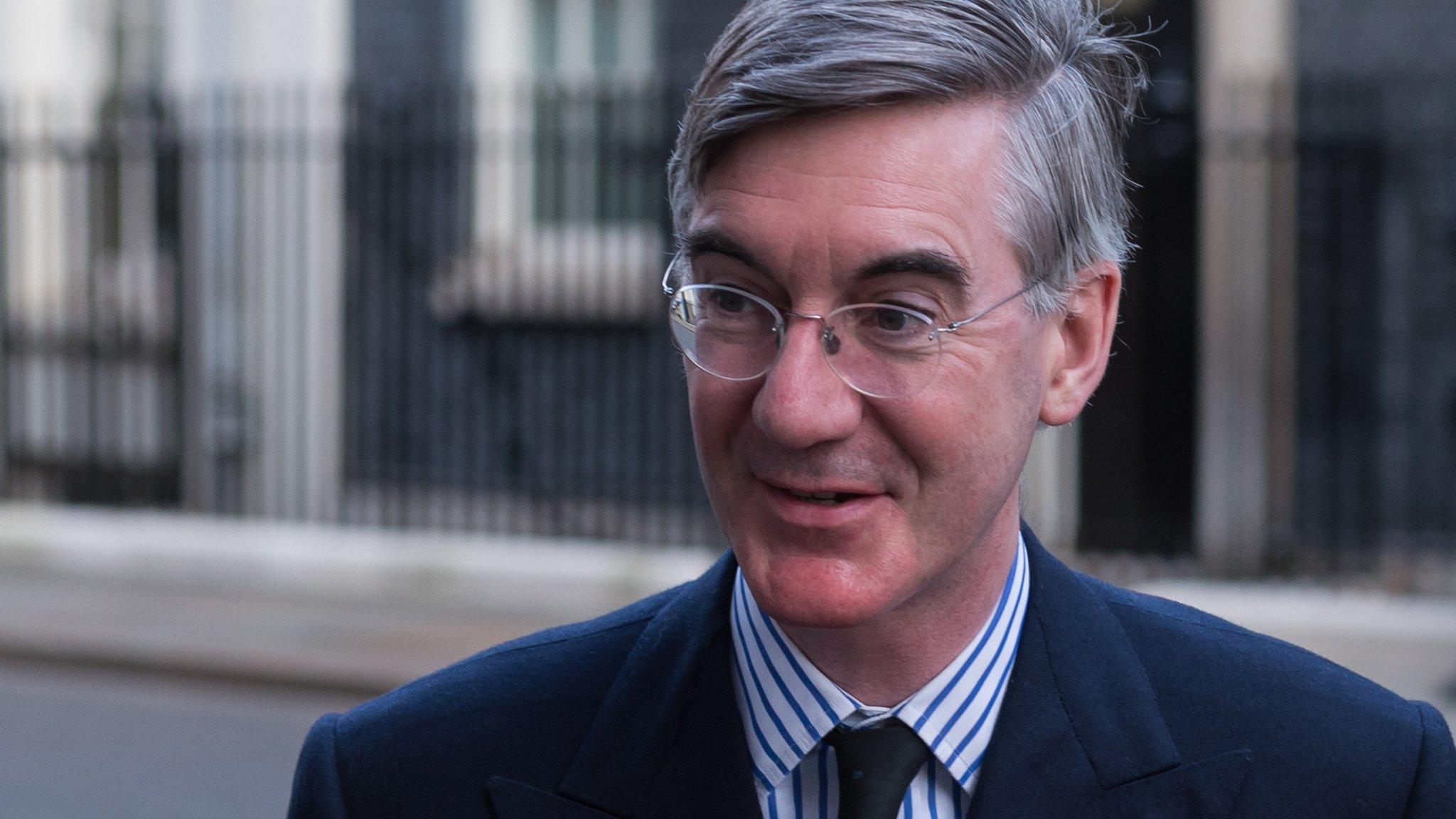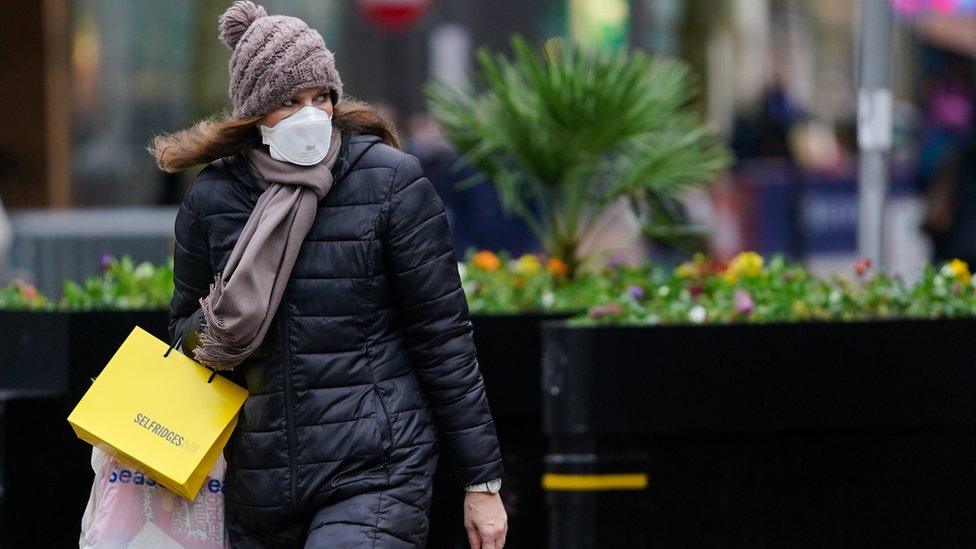Jacob Rees-Mogg calls for civil servants to return to the office
- Published
- comments

Civil servants must stop working from home and return to the office to ensure government buildings are at full capacity, ministers have been told.
Cabinet Office minister Jacob Rees-Mogg has written to cabinet colleagues urging them to send a "clear message" to the civil service about returning.
The FDA union said his comments were out of step with practice in the private sector.
Average daily attendance in the week of 4 April was 44%, figures show.
The government's recommendation for people to work from home ended in January, after being reintroduced in the face of the emergence of the Omicron variant last year.
But Mr Rees-Mogg - who also has the role of government efficiencies minister as part of his brief - said there was "much further to go" to reach pre-pandemic levels.
The prime minister's official spokesman said it was right to push for a return to pre-pandemic levels of occupancy.
He said it was not just about "value-for-money" for taxpayer-funded buildings but also of benefit to staff - particularly junior staff, whose career development can be hampered by a lack of face-to-face working, the government believes.
In a letter to the heads of government departments dated 13 April, seen by the BBC, he urged cabinet ministers to "review any guidance within your departments that sets an expectation of the minimum number of days in the office per week."
He also sent a league table of daily civil service office attendance from the week beginning on 4 April, which shows in some departments daily average of staff in the workplace was lower than a third.
The Department for Education had the lowest office attendance at 25% of current daily capacity, while the Department for International Trade was highest at 73%.
The average across all departments in the same week was 44%, according to the figures.
'Simply unacceptable'
Mr Rees-Mogg said he planned to continue visiting departments with lower attendance figures to "ensure we are making efficient use of the central London estate".
Dave Penman, the general secretary of the FDA which represents senior civil servants, said the move was "vindictive" and accused ministers of acting like "luddites".
He said there was "no rationale" for it, arguing that ministers "couldn't point to productivity losses" and were obsessed with micro-managing the civil service.
Some senior Tory MPs have also called for more to be done to encourage civil servants back to their workplaces.
Sir Graham Brady, chairman of the backbench 1922 committee, wrote at the weekend: "It is simply unacceptable for so many of our public servants to continue sitting at home."
Asked about the letter, a government spokeswoman said: "Ministers have been clear that departments should make maximum use of office space and progress is being monitored."
However, some have suggested forcing civil servants to return to the office may be counter-productive.
In a report from February, external, the Institute for Government think tank argued offering hybrid working has key benefits to help the government achieve its agenda and said the government would be wrong to force a return to full-time office work.
It said the benefits of flexible working were needed to help the government relocate centres of the civil service outside of London - and to recruit the best staff.
Related topics
- Published10 February 2022

- Published31 January 2022

- Published19 January 2022
